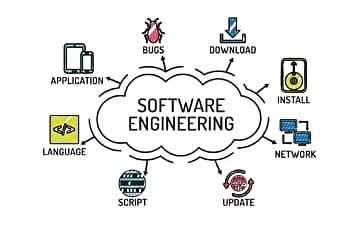Software Engineering

About Course
Course Content
Software and Software Engineering
-
Software Engineering with its Characteristic
04:15 -
General principle of a software
03:32 -
Software Process Framework
03:30 -
Layered Structure
02:50 -
Seven Categories
03:32 -
Umbrella activity
03:05 -
Unique Nature
03:30 -
Software and Software Engineering